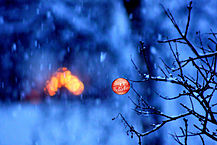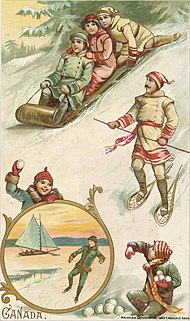User talk:Interstellarity/Archives/2022/December
| This page is an archive of past discussions. Do not edit the contents of this page. If you wish to start a new discussion or revive an old one, please do so on the current talk page. |
Not sure how to proceed
| This help request has been answered. If you need more help, you can , contact the responding user(s) directly on their user talk page, or consider visiting the Teahouse. |
I created two RMs here and here and there seems to be a solid opposition to both moves. I would like if withdrawing the RMs would be the best solution here. I would also like to know if my edits are borderline disruptive because that is one door I do not want to open regarding that. Any help is appreciated. Interstellarity (talk) 13:22, 7 December 2022 (UTC)
- There is nothing wrong with withdrawing a nomination, assuming there is no additional support. Primefac (talk) 17:14, 7 December 2022 (UTC)
Having issues with my Discord account
| Your question is not about using Wikipedia. The {{Help me}} template is only for questions that are Wikipedia-specific – editing, navigating, etc. Your question seems to be better suited for the reference desk, a place where you can ask general knowledge questions about matters unrelated to Wikipedia use. If you would like to ask a question about using Wikipedia, please replace the code {{Help me-rdq}} on this page with {{Help me}}, or connect to wikipedia-en-help for live chat assistance. |
I am trying to log into the Discord Wikipedia server, but I am having issues. I know my email, phone number, and password, but I can't seem to get in. When I try logging in with email, it asks for a phone number, which says it is taken. When I try logging in with my phone number, it asks for an email, which says it is taken. Can you help me figure out what is going on and how to fix it? Thanks, Interstellarity (talk) 13:39, 7 December 2022 (UTC)
On the upcoming future transformation of User:SethAllen623/Vital articles/Level/5
My apologies for the lack of activity as a WP user. But I have to tell you, I've been pondering plans for the transformation of my Level-5 Vital Articles list to meet the project's current standards. Wikipedia:Version 0.7 might help in giving me ideas for such a transformation, but there are many topics included that you will rule ineligible for admission into my list. Here are some quotas I'm considering that I need to be certain that you would approve of.
Applied science and technology: 500 articles on architecture (including 340 pages about specific buildings and other structures), 230 articles on aviation, 560 articles on broadcast communication media (plus 65 additional articles on the technology of such media), 1,300 articles on computing, 340 articles on energy, 140 articles on engineering, 320 articles on ground transportation, 40 articles on horticulture (plus various articles about gardening), 125 articles on maritime transport, 450 articles on medicine and health (plus 30 articles on medical technology), 300 and 600 articles on military science and technology respectively, 135 articles on space exploration, 230 articles on electronics, and 6,300 technology articles in total.
Arts: 35 animation articles (10 basic concepts and 25 specific films), 110 comics articles (20 basic concepts and 90 specific works), 20 comics/cartoon character bios (plus 20 superhero bios), 510 articles on cinema and filmmaking outside of animation, 400 articles on specific films regardless of format or production, 30 articles on comedy, 150 articles on dance, 360 articles on musical genres, 100 articles on the music of specific regions, 260 articles on museums, music halls and other cultural venues, 75 articles on opera, 480 articles on television, 5 articles on textile arts, 120 articles on the theater, and 1,000 articles on visual arts overall.
Biographies: 30,000 biographies in all, including: 2,400 bios of actors and other entertainers, 600 bios of filmmakers, 1,600 bios of artists, 3,000 bios of musicians and composers, 4,600 articles on political and government leaders (royalty, presidents and others), 1,000 military bios, 2,300 bios relating to the sciences, 2,600 bios of philosophers and academics, 2,400 bios of sportspeople, 2,400 bios of people in those fields that the official Level-5s deem "miscellaneous," 1,000 articles on saints and other religious... and, well, I can't be bothered to give you quotas for the rest.
Everyday life and sports: 80 general amusements articles, 420 articles on clothing and fashion, 1,200 articles on cooking, food and drink, 200 articles on sexuality, 230 articles on sports leagues and teams, 5 baseball articles, 10 football articles, 10 soccer articles, 60 motorsports articles, 85 sports authorities, 120 articles on the Olympics, 5 articles on wrestling, 340 articles on traditional games, and 380 articles on video games.
History: 160 articles on history basics (including 140 on archaeology and other auxiliary historical sciences), 640 articles on ancient history, 900 articles on the post-classical world (with 430 specifically concerning Medieval Europe), 425 articles on the history of Europe in modern times, 520 articles on the overall history of North and South America, some 80-plus articles on the history of Russia (including 30 articles on the Soviet era), and 290 articles on World Wars I and II (110 for the former and 180 for the latter).
Language and literature: 1,180 articles on language (including 150 linguistics articles), 240 articles on general literary concepts, 110 articles on literatures by religion, language and area, and 1,650 articles about specific works of literature.
Logic and mathematics: 40 articles on logic and 2,500 mathematics articles.
Natural science: 100 articles on the basics of science (natural science included), 270 articles on anthropology and ethnology, 1,800 articles on astronomy and space, 2,400 articles on biology (and the related topics of biochemistry, anatomy, and physiology), 200 articles on ecology in particular, 2,400 articles on chemistry, 110 articles on color, 340 general earth sciences articles, 200 articles on evolution, 1,070 articles on geology, 210 articles on meteorology (not counting articles on weather-related disasters in the History sublists), 70 articles on molecular biology, 2,400 articles on physics, 80 articles on chemical analysis (including 25 articles on spectroscopy), and 30 and 20 articles on volcanology and glaciology respectively.
Philosophy and religion: 340 general religion/spirituality articles (including 40 articles on religious basics and 70 articles on belief systems), 30 articles on philosophy basics, 280 articles on philosophical branches, approaches and concepts, 340 articles on Christianity (plus 35 articles on various basic concepts in that faith and 140 articles on the Biblical canon), 60 articles on Hinduism, 210 articles on Buddhism, 210 articles on Islam, 100 articles on Judaism, 80 articles on ethics, and 730 articles on mythology.
Social sciences and society: 440 articles on business, 480 articles about specific companies, 180 articles on economics, 150 articles on financing, 1,150 articles on law (including 250 articles on crime), 610 articles on education (including 520 articles on universities and other institutions), 50 articles on journalism, 500 articles on organizations, 450 articles on politics and government, 450 articles on psychology, and 120 articles on sociology.
I haven't covered everything here, but this list of quotas should be enough. Anyways, I'm submitting the quotas offered above for your approval. If I should go higher or lower on any of them, feel free to let me know as all of these quotas are approximate, not exact. -- Seth Allen (talk) 19:10, 21 December 2022 (UTC)
- Hi @SethAllen623 and thanks for reaching out to me. My only suggestion would be to use round numbers. For example, by using multiples of 10, 20, 25, 50, and 100 for smaller quotas, and multiples of 100, 125, 200, 250, 500, and 1000 for larger quotas. You do not have to run my suggestions through me, although I'd be happy to give you input. I think that once you complete your level 5 list with 100,000 articles, we could possibly change the quota for the main list of vital articles to 100,000 since it is a multiple of 10. I really like the idea of editors creating their own lists of what they consider to be vital articles and I think in general, will help improve the main list, which in turn, will improve your list and cycle continues on. Thank you for taking the time to make a list. Interstellarity (talk) 01:09, 22 December 2022 (UTC)
Happy Holidays!



Interstellarity Enjoy the holiday season and winter solstice if it's occurring in your area of the world, and thanks for your work to maintain, improve and expand Wikipedia. Cheers, RV (talk) 07:33, 24 December 2022 (UTC)

- @RAJIVVASUDEV:: Thank you. Enjoy your holiday season as well! Interstellarity (talk) 19:44, 25 December 2022 (UTC)

